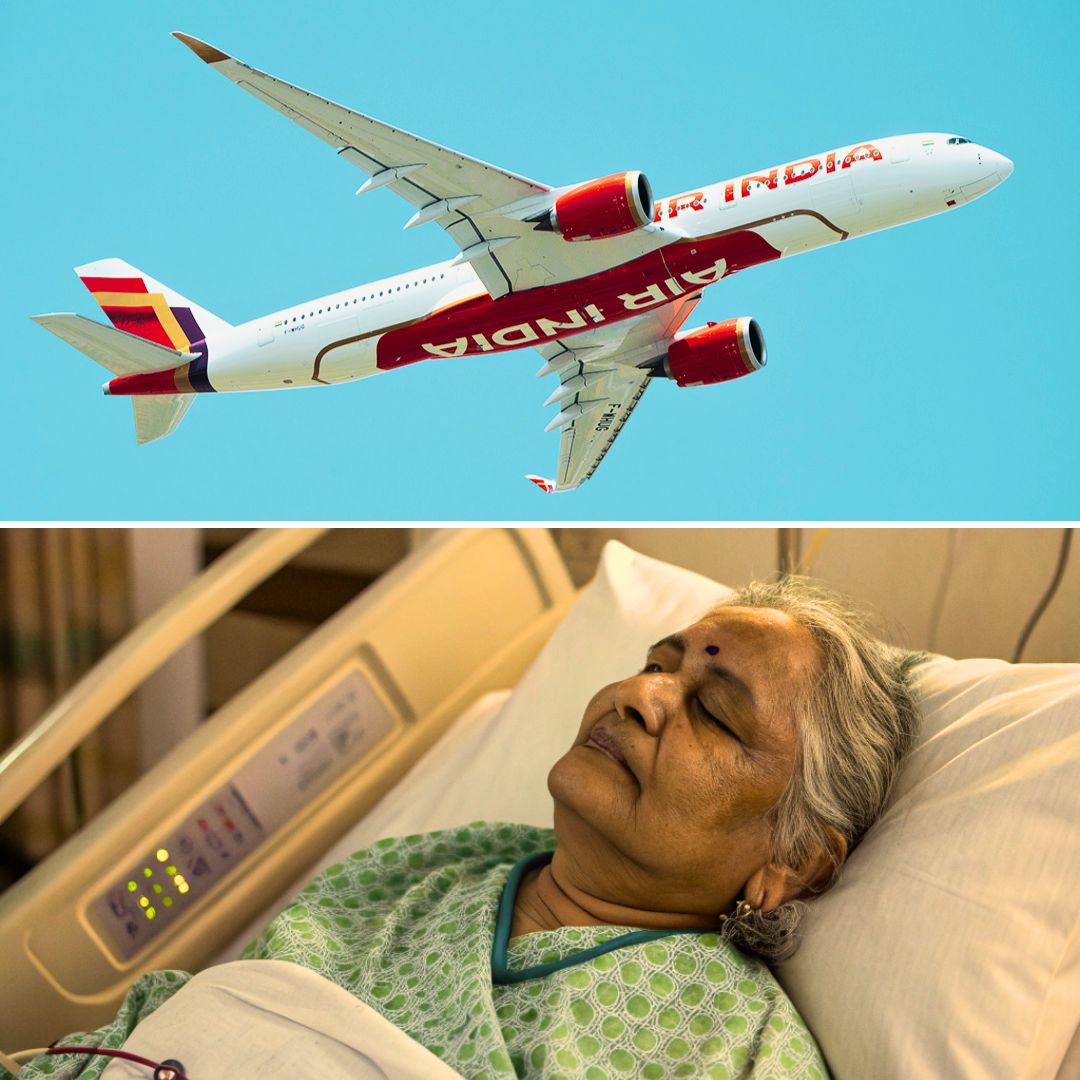A distressing incident involving an 82-year-old woman, Raj Pasricha, the widow of a decorated Lieutenant General, has highlighted significant lapses in airline services at Delhi’s Indira Gandhi International Airport. On March 4, she was allegedly denied a pre-booked wheelchair by Air India, leading to a fall that resulted in injuries, including a bleeding lip and head trauma.
Despite repeated requests, assistance was only provided after the incident. The woman is currently in ICU under observation for potential brain bleeds. Air India has expressed concern and is working on the matter, wishing her a speedy recovery. The family has lodged complaints with the Directorate General of Civil Aviation (DGCA) and Air India.
Incident Details
The elderly woman had booked a wheelchair in advance for her flight from Delhi to Bengaluru on March 4. However, upon arrival at Terminal 3, no wheelchair was allocated despite multiple requests to Air India staff and the airport help desk. Even IndiGo staff, who had a spare wheelchair, refused to assist. Parul Kanwar, the woman’s granddaughter, recounted the distressing experience on social media, stating, “You treated my grandmother so poorly, and with such little regard.
You should be ashamed.” The family had to arrange medical aid themselves after the fall, and the woman was eventually boarded onto the flight with visible injuries. The flight crew provided some assistance, including ice packs, and arranged for medical aid upon landing in Bengaluru, where she received two stitches.
Context and Response
This incident is not an isolated case but part of a broader pattern of concerns regarding airline services and passenger care, particularly for elderly and disabled individuals. Air India responded to the allegations, stating they are “concerned to note” the incident and are actively working on it.
The airline expressed wishes for the woman’s speedy recovery and requested contact details from the family to discuss the matter further. However, the response has been criticized for being insufficient, given the severity of the incident.
The family has filed complaints with both Air India and the DGCA, awaiting further action. The DGCA has the authority to investigate such incidents and impose penalties if airlines are found to have violated regulations. The incident has sparked calls for improved service standards in the aviation sector, emphasizing the need for airlines to prioritize the safety and dignity of all passengers.
Regulatory and Public Response
The public response to this incident has been overwhelmingly critical, with many calling for stricter regulations and better training for airline staff. The DGCA’s role in ensuring compliance with passenger rights regulations is crucial, and their investigation will be closely watched. Additionally, social media platforms have been instrumental in bringing attention to the incident, highlighting the power of public scrutiny in holding airlines accountable.
The Logical Indian’s Perspective
This unfortunate incident underscores the need for empathy and efficient service in the airline industry, especially for passengers requiring special assistance. It raises questions about accountability and the effectiveness of existing protocols for handling such situations. As we reflect on this incident, we must consider how we can foster a culture of kindness and respect for all individuals, regardless of age or ability.
As a society, we can promote greater empathy and support for those in need by advocating for better services and holding institutions accountable. We must ask ourselves: What steps can we take to ensure that our elderly and vulnerable citizens are treated with dignity and respect in public spaces?
How can we create a culture where such incidents are not just condemned but also prevented through proactive measures? By engaging in this dialogue, we can work towards creating a more compassionate and inclusive society for all.











